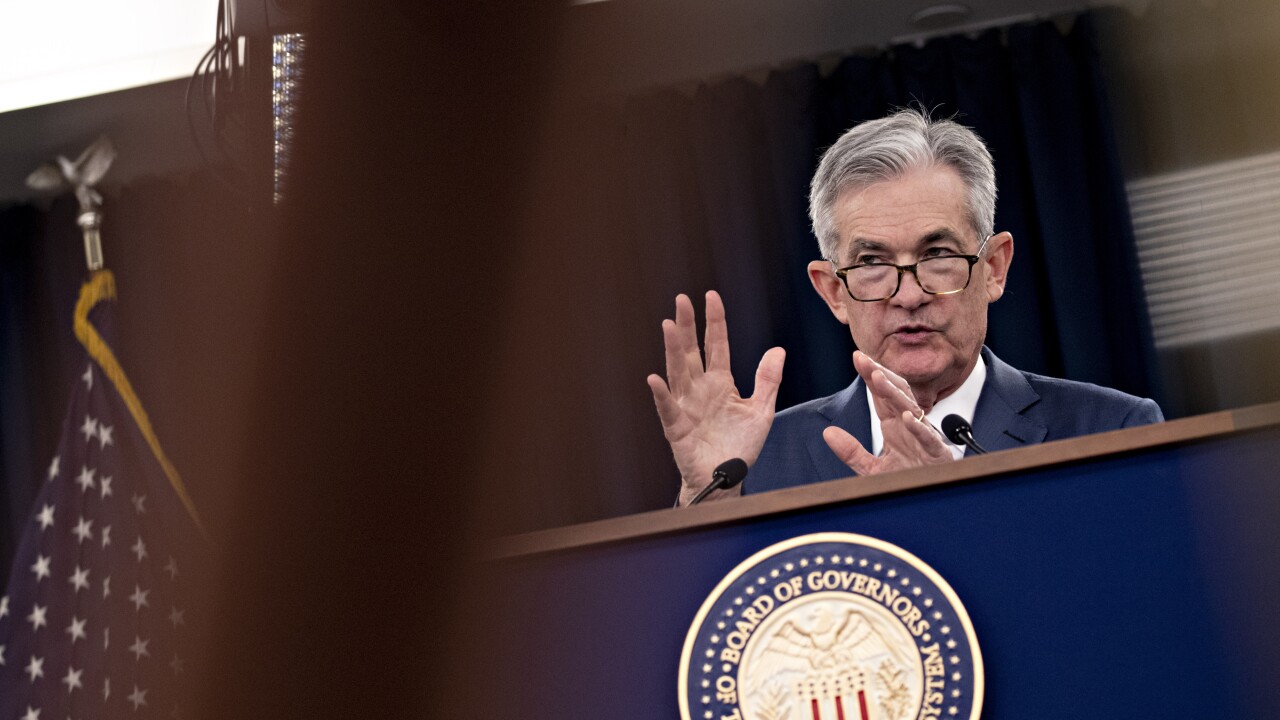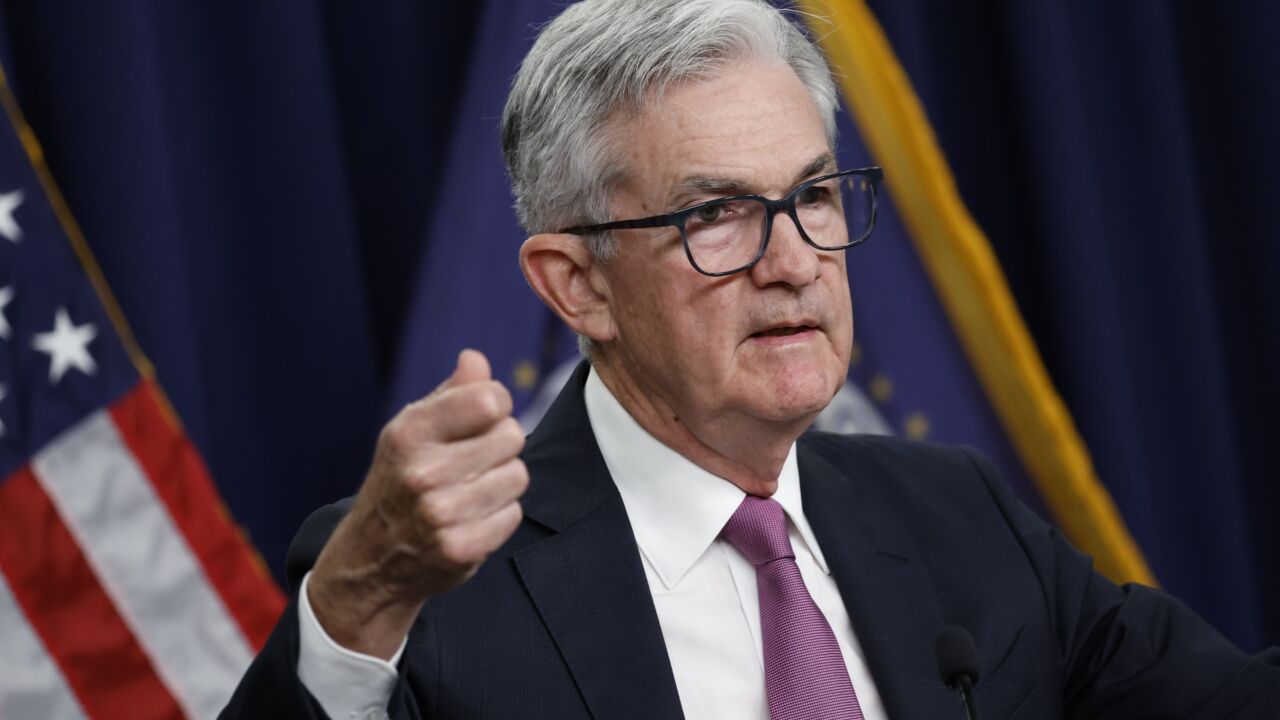Federal Reserve
Federal Reserve
-
Mortgage experts were expecting the first FOMC meeting under President Trump would have more significance in the long run than short-term, with some wild cards.
January 29 -
With the Federal Reserve touting a slower pace of easing, markets are expecting a longer pause. But Gov. Christopher Waller said the next interest rate reduction could come as soon as March because of inflation data.
January 16 -
Seen by many as a logical pick for the Federal Reserve's next vice chair for supervision, Gov. Michelle Bowman wants the institution to focus on safety and soundness issues, tailoring and transparency.
January 9 -
Analysts are unsure what the Federal Open Market Committee will do with monetary policy in 2025. The panel projects two rate cuts, but some analysts expect more, and others see fewer.
December 26 -
The Federal Reserve is poised to make several key decisions during the year ahead that will impact monetary policy both in the near term and for years to come.
December 25 -
The Federal Reserve will seek comment on the current stress-testing regime with an eye toward increasing transparency and reducing volatility. Modifications would not go into effect until at least 2026.
December 23 -
Annualized inflation increased to 2.7% in November from 2.6% the previous month, providing further evidence that the economy remains strong despite restrictive monetary policy.
December 11 -
Economic forecasts include the possibility of higher inflation and slower growth that could stall future cuts to the federal fund rates.
December 5 -
The rally left yields lower by at least three basis points, with short maturities — more sensitive to Fed policy changes — falling the most.
December 4 -
The Federal Reserve chair said there are no economic indicators calling for rapid rate cuts. He also addressed Fed independence, the impact of Trump's economic agenda and more.
November 14 -
Two-year yields — more closely tied to the Fed's decisions than longer-maturity debt — reached the highest level since July, and three- to 30-year yields rose at least 10 basis points.
November 12 -
Sens. Elizabeth Warren and John Hickenlooper say recent data suggests there is "no need for restrictive interest rates" and easier monetary policy is necessary to lower housing costs.
November 4 -
Core PCE held steady as service costs rose, but the overall report maintains the central bank's flexibility ahead of next week's Federal Open Market Committee meeting.
October 31 -
Consumer Financial Protection Bureau Director Rohit Chopra said regulators urgently need to implement the Basel III endgame bank capital proposal, suggesting his opposition to the revised rule centers on the process of re-proposal rather than more substantive opposition to suggested revisions.
October 24 -
Europe's top finance ministers are questioning the U.S.'s commitment to the global capital standards. The mistrust could have consequences for international regulatory efforts.
October 8 -
The strong jobs report had traders shredding their aggressive bets for outsized rate cuts at the next policy meeting.
October 4 -
Federal Reserve Gov. Lisa Cook called for weighing the costs and benefits of artificial intelligence, and flagged bias and fraud as areas of concern.
October 1 -
Federal Reserve Gov. Michelle Bowman said a lack of banking experience among regulatory officials has led to unintended consequences. She flagged mergers, fintech partnerships and liquidity proposals as prime examples.
September 24 -
The move signals the end of the Federal Reserve's battle against runaway inflation in the wake of the COVID-19 pandemic. Fed officials expressed divergent views on further action this year.
September 18 -
Federal Reserve Vice Chair for Supervision Michael Barr outlined the changes he and other regulators would like to see to the capital reform plan, including largely excluding banks with less than $250 billion of assets.
September 10



















